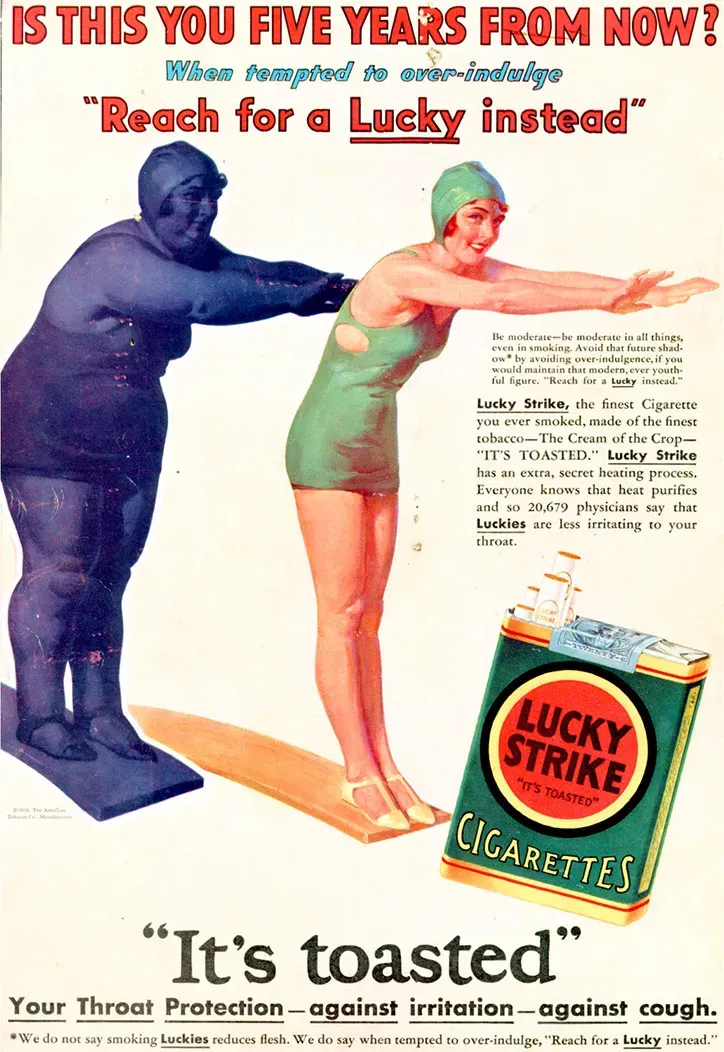On fear, uncertainty, and doubt
During the 1950s and 60s, the tobacco industry infamously used fear, uncertainty, and doubt (FUD) as a propaganda technique. To protect their cash cow, they not only deliberately sowed doubt about the growing evidence against cigarette use by funding dubious studies, but also brazenly promoted ads like this:

These tactics are highly effective because they exploit our primitive instincts of survival and self-preservation, and appeal to socio-cultural traits like greed and status-seeking.
Unfortunately, FUD seems to have become the default playbook used by every politician to outdo their political rivals. Just turn on any news channel or scroll through political Twitter, and the "race to the bottom" state of politics becomes very clear. We seem trapped in a vicious cycle of escalating destructive behavior, at great cost.
Globally, more people believe that government institutions are a source of false or misleading information than those who believe they are a reliable source of trustworthy information, fueling distrust and leading to increased polarization.
So, what can we do about this as individuals? I’m trying a few strategies to help me recognize when FUD politics are capturing my attention.
I avoid clickbait headlines and articles. I don't watch any cable news. CNN, Fox, and the like have been reduced to nothing more than political reality TV meant to entertain and enrage rather than inform. No one needs minute-by-minute commentary and a deluge of "breaking” news.
When I want to understand a politician's views, I look for long-form interviews. This way, I can learn more about their values by listening to them speak in various contexts with different people, rather than relying on carefully selected soundbites.
Sometimes, I deliberately take a position I disagree with when debating my friends, just to see how well I can articulate it and therefore understand it.
I approach my media diet with a heavy dose of skepticism, or at least step back and put some distance between myself and enraging news before reacting. This is easier said than done, but it feels worth it if we are to rebuild trust by not letting fear lead us astray.
There’s another form of FUD that is arguably even more important, one that’s far deeper and personal to each of us. Rather than coming from an external source, it often emerges from our own minds, usually in response to new or challenging situations.
Much like FUD propaganda, this internal FUD can cause increased internal polarization and erosion of self-trust. If you’ve ever felt paralyzed by a particularly difficult decision, you’ll relate to this concept.
Writing this post was inspired by my attempts to confront my fears, uncertainties, and doubts. After leaving my startup to take a sabbatical a few months ago, I've found myself experiencing FUD on multiple occasions. Unsurprisingly, most of these instances were work-related. Having been a startup founder for two years (and wanting to be one for several years before that), I suddenly found a hole in my identity that I felt compelled to fill.
Fear of the unknown, uncertainty about what’s next, and doubts about my abilities have led to moments of anxiety and indecision. Yet, these experiences have also allowed me to grow as a person.
Step one was to acknowledge and recognize that just like FUD propaganda, internal FUD can be misleading. Fears and doubts often magnify issues, making them appear worse than they are. Creating some distance between myself and my emotions has proven invaluable.
However, the goal isn't to suppress negative emotions entirely. It's about becoming comfortable with these feelings, managing them on your terms, and gaining a new perspective. Fears and doubts are like passengers reminding us to drive with caution. Their presence can be useful, as long as we don't let them take the driver's seat—at least not most of the time.
I’m tackling my internal FUD with a healthy dose of skepticism, recognizing that my fears are often exaggerated and my doubts unfounded, but are still worthy of examination and attention. Adopting this approach is slowly transforming indecision into thoughtful action, and FUD into confidence, clarity, and self-trust.